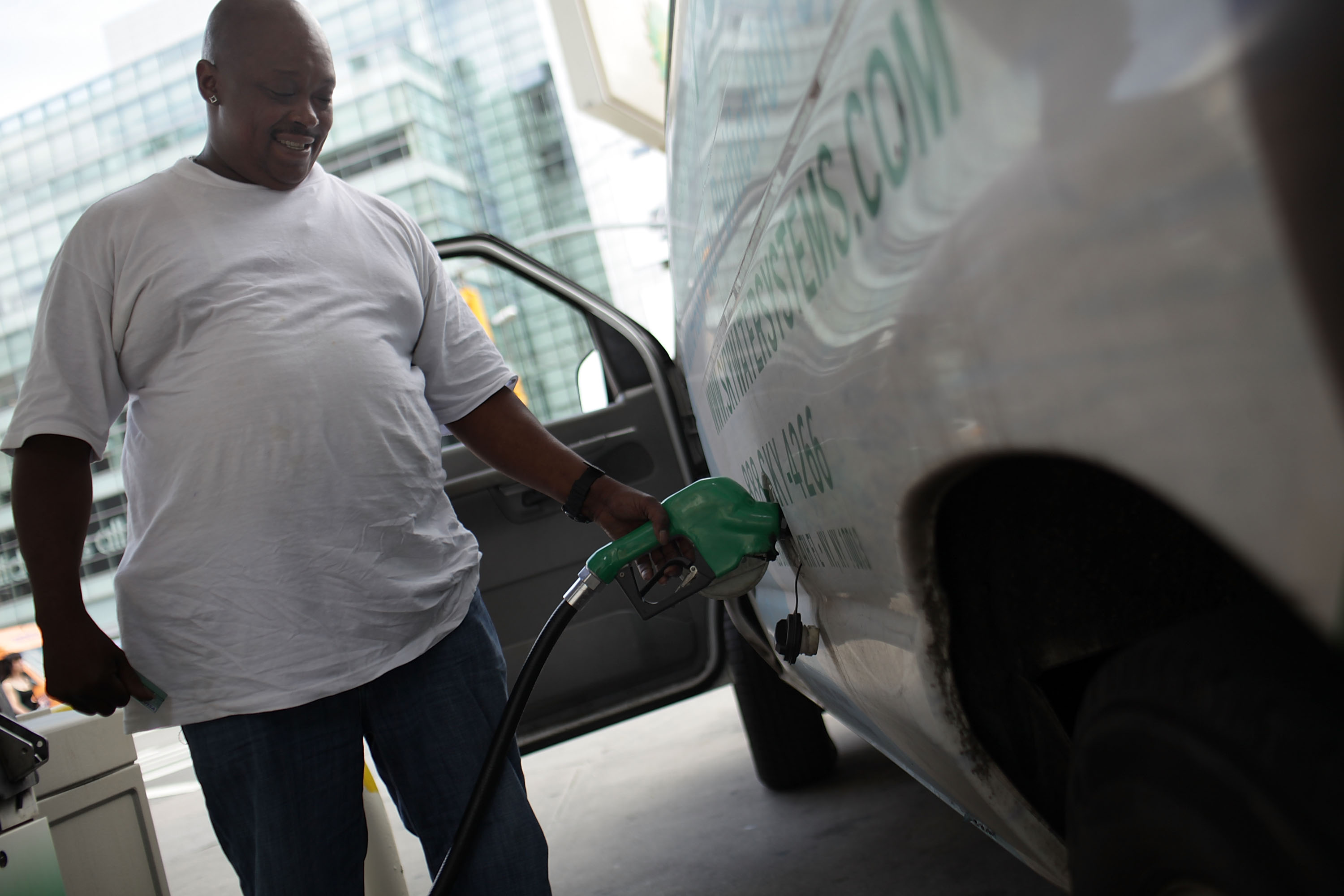The EPA is pushing new nationwide fuel economy standards that would bring the nation up to California’s strict standards.

At a public hearing in San Francisco today a diverse group of stakeholders lined up to support the EPA’s proposal to increase the fuel efficiency standard for cars and light trucks to 54.5 miles per gallon. As we’ve reported here, the rule would affect models between 2017 and 2025 and will likely be adopted by the end of the summer.
The California Air Resources Board (CARB) worked closely with the EPA to develop the standard and testified that if the rule can be finalized as proposed, California will be willing to accept the national standard. CARB has been taking heat for this collaboration from Orange County Congressional Representative Darrell Issa, who has accused the state of meddling in national regulatory affairs.
“A lot of this work has been led by the state of California,” said Michael Brune, executive director of the Sierra Club. “California set the first tailpipe emissions standards more than a decade ago.” Unifying the standards across the country is something that automakers have long wanted.
Several auto makers including Chrysler and Hyundai testified early in the day that they support the proposal. Chrysler’s director of Regulatory Affairs, Reg Modlin, said the mid-term review built into the program will be important for companies that make cars. “We’re looking out a long way in technology terms and also in market acceptance terms,” he explained to me. “So the key thing in the mid-term review is to test, to evaluate if the market is buying the products that we’re looking for.”
[module align=”left” width=”half” type=”pull-quote”]”This new standard is going to force the manufacturers to supply us with the types of cars we need”[/module]
Jack Gillis of the Consumer Federation of America says the buyers will be there. “Consumers want more fuel efficient vehicles — and the problem is they really aren’t out there in the market,” he said. “This new standard is going to force the manufacturers to supply us with the types of cars we need,” he added. While there was general agreement among those who testified that increasing fuel standards will reduce the cost at the pump for the consumer, lower U.S. oil dependence and have a huge impact on greenhouse gas emissions, not everyone agreed with the proposal as written.
Car dealers are worried that customers can’t afford the more expensive technology in fuel-efficient cars. “Part of the concern is that it’s $3,200 [added] to the price of a car and that’s a lot of money for our customers,” Forrest McConnell of the National Association of Automobile Dealers told me. He says he’d prefer the EPA move more slowly to allow customers to get used to the new products.
I asked Gillis, the consumer advocate, about the affordability factor. He said that car prices go up every year and consumers are used to it. In addition, he argued that better fuel standards will mean that the consumer immediately starts seeing returns on that investment when they get to the pump. It’s a timely question amid forecasts this week of $4.50 gas by Memorial Day.
On Thursday, the CARB will meet to accept its own set of emissions standards, dubbed the Advanced Clean Car package, which includes greenhouse gas reductions that match the EPA’s proposed standards. In addition the Air Board will consider proposals to cut California’s greenhouse gas emissions more deeply by increasing the number of zero-emission-vehicles on the road to 15% by 2025 and beefing up the state’s plug-in electric car infrastructure. Check out Lauren Sommer’s recent radio story for QUEST on California’s tougher regulations.
